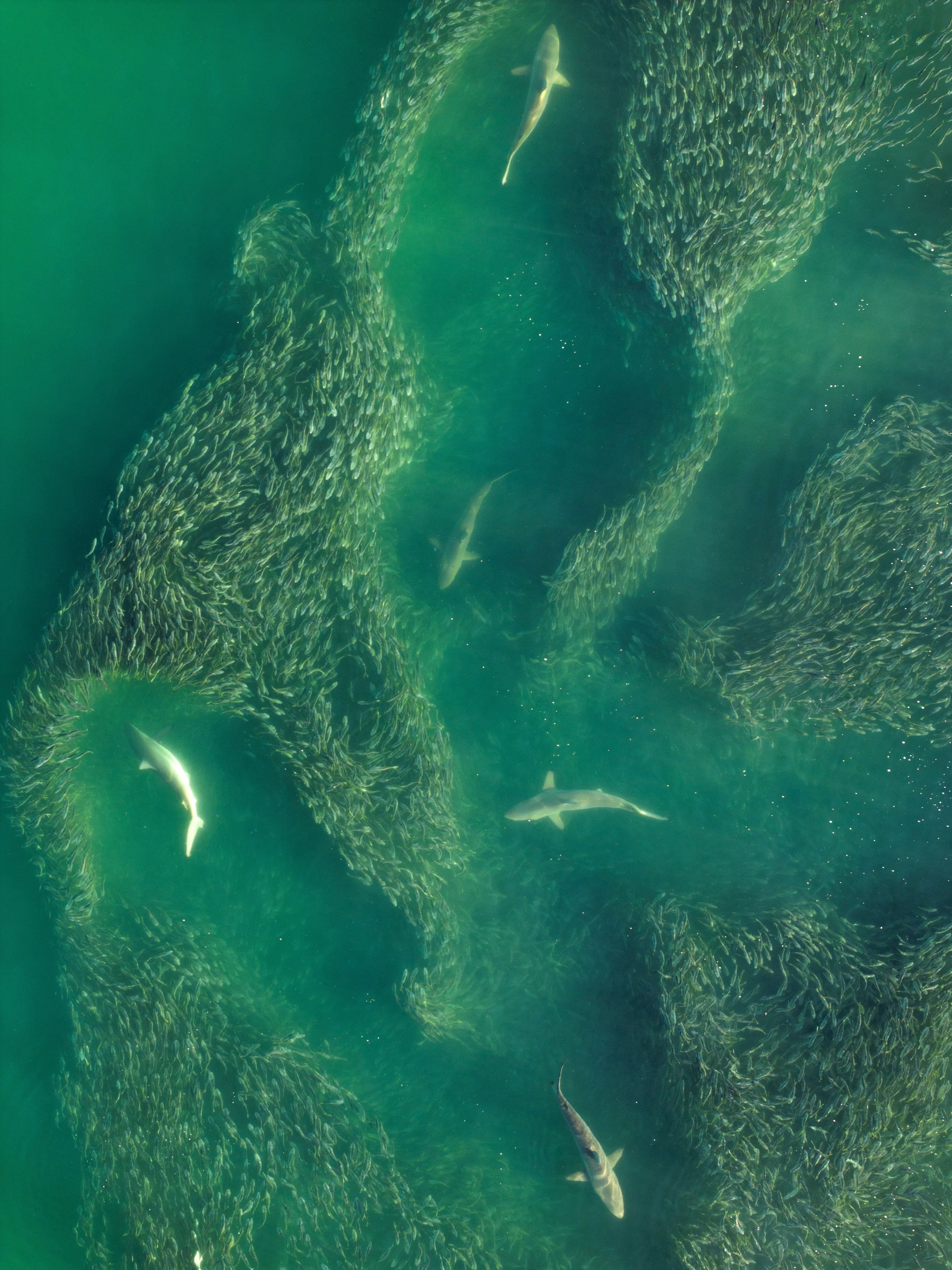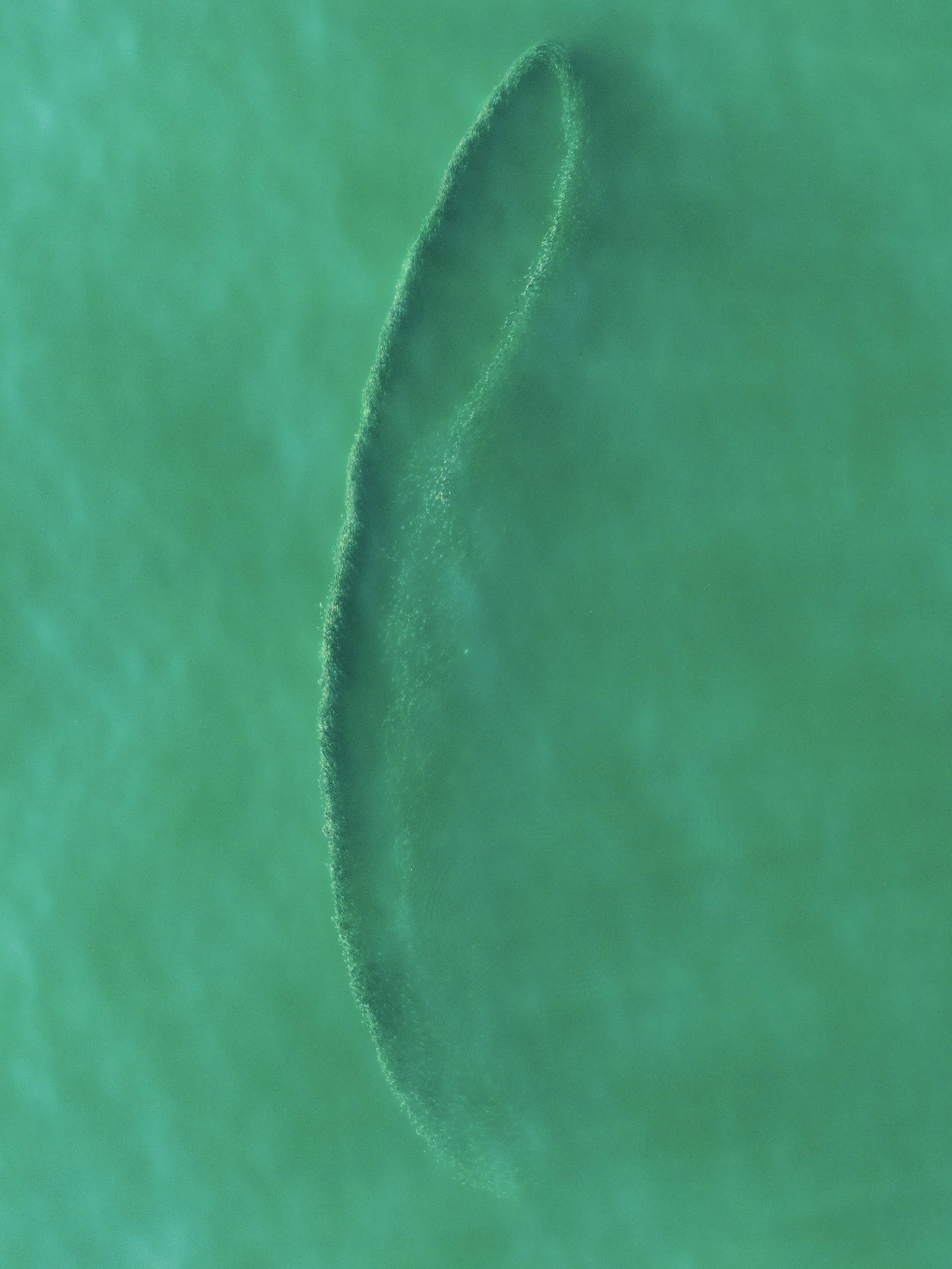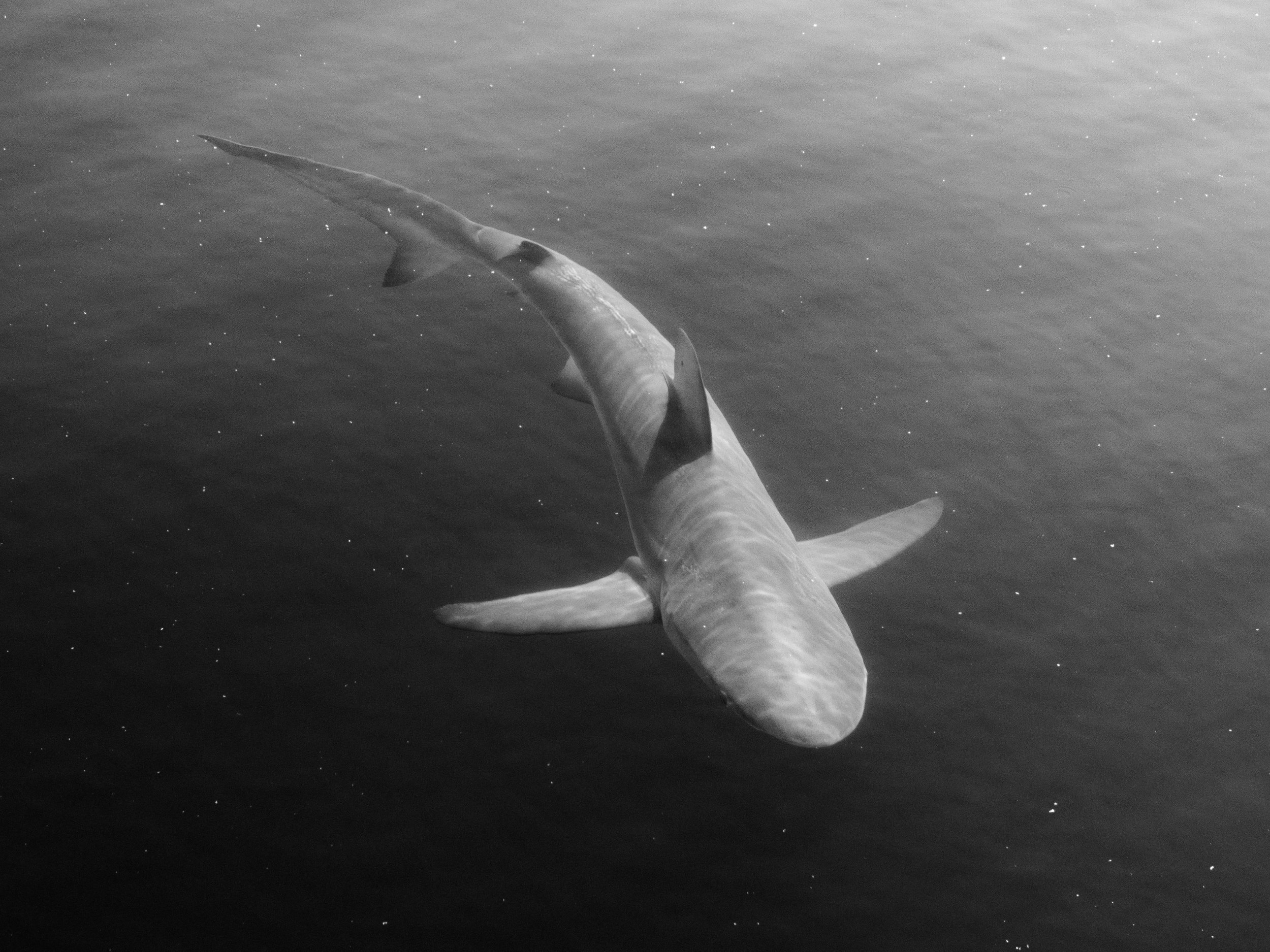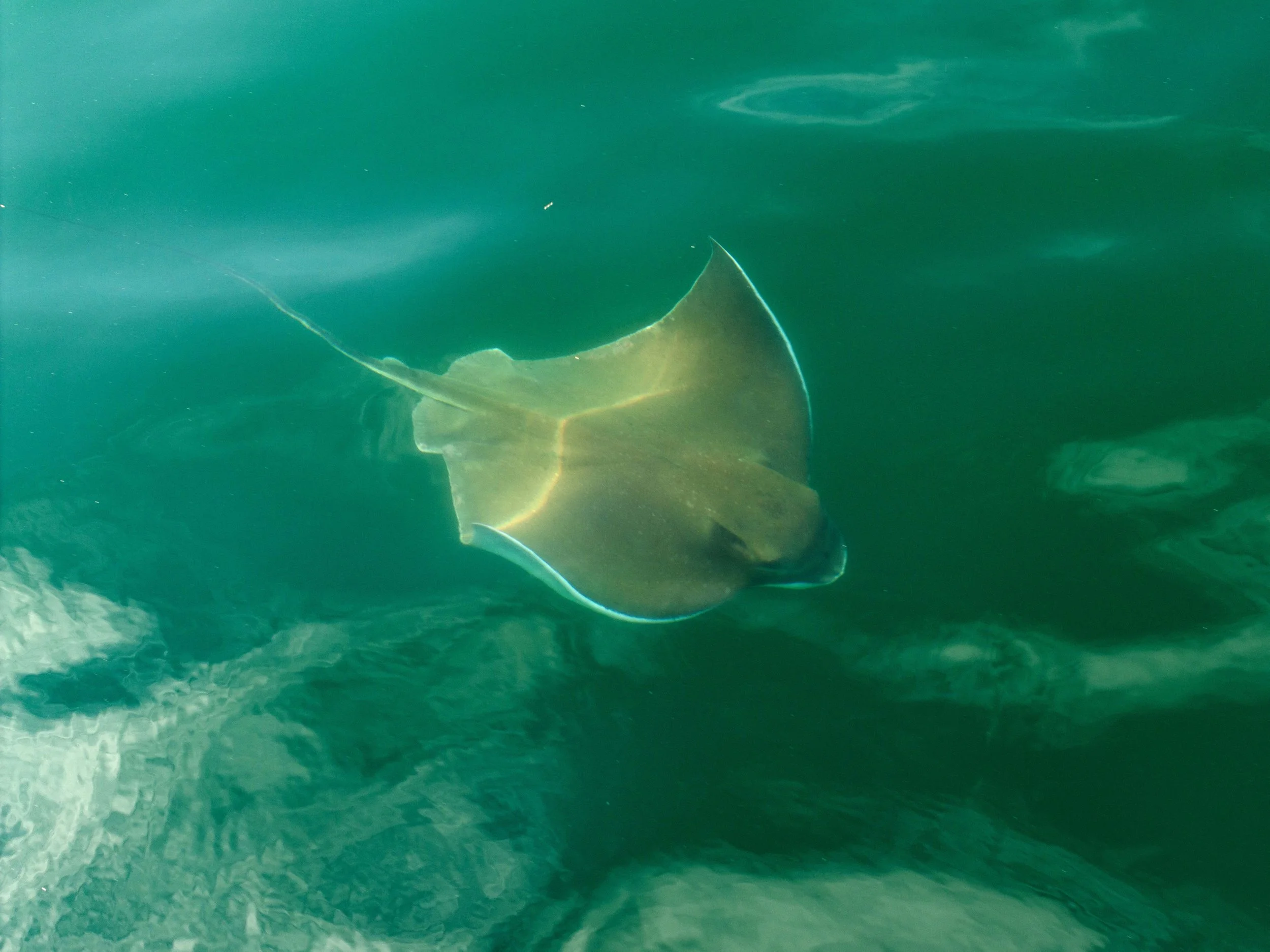
Migration Season 2025 - June through October
In 2012, the Atlantic States Marine Fisheries Commission set the first coastwide catch limit for Atlantic Menhaden — a keystone species whose population had declined by nearly 90% from overfishing. Often called the most important fish in the sea, menhaden filter plankton from the water and sustain countless predators, from whales to striped bass. Within a few years, their numbers rebounded, water quality improved, and marine life returned to coastal waters in unprecedented abundance.
By 2025, a clear shift began to emerge. The dense schools of menhaden that once filled the nearshore waters are now less consistent — smaller, scattered, and less frequent. Their absence is subtle but noticeable, and it seems to ripple outward: fewer surface disturbances, fewer predators feeding close to shore. It’s hard to point to a single cause — changing water temperatures, migration shifts, and fishing pressure all play a part. What’s certain is that the balance feels different now, a quiet reminder of how complex and interconnected these coastal systems are


















